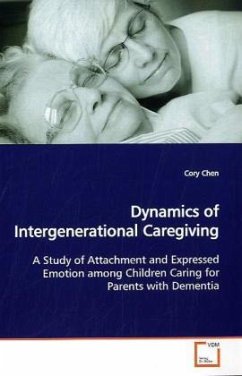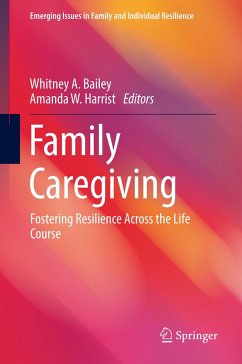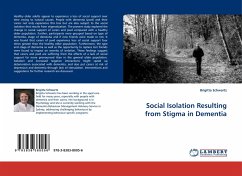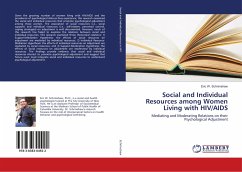
Living with Dementia and Caregiving
Perspectives from Three Ethnic Groups
Versandkostenfrei!
Versandfertig in 6-10 Tagen
52,99 €
inkl. MwSt.

PAYBACK Punkte
26 °P sammeln!
This book explores the subjective reality of living with dementia and caring for a person with dementia within multicultural Britain. Sixty two in-depth interviews investigate the diversity of experiences of black Caribbean, south Asian and white British people with dementia and their carers. People with dementia were found to engage in a process of appraisal in which they assessed the threat that dementia related changes held for their lives. Cultural values and beliefs were influential at each stage in this process. Carers were categorised as holding either a traditional or non-traditional c...
This book explores the subjective reality of living with dementia and caring for a person with dementia within multicultural Britain. Sixty two in-depth interviews investigate the diversity of experiences of black Caribbean, south Asian and white British people with dementia and their carers. People with dementia were found to engage in a process of appraisal in which they assessed the threat that dementia related changes held for their lives. Cultural values and beliefs were influential at each stage in this process. Carers were categorised as holding either a traditional or non-traditional caregiving ideology according to whether or not they conceptualised caregiving as natural, expected and virtuous. This informed the continuity and rewards experienced in the caregiving role, coping strategies , informal support , nature of the caregiving role and attitudes towards formal support . Thus, two models for understanding the behaviour of people with dementia and carers are proposed. The two theories identify processes that apply across ethnic groups and cultural patterns that occur with them, both of which can help to shape the provision of culturally competent care.












